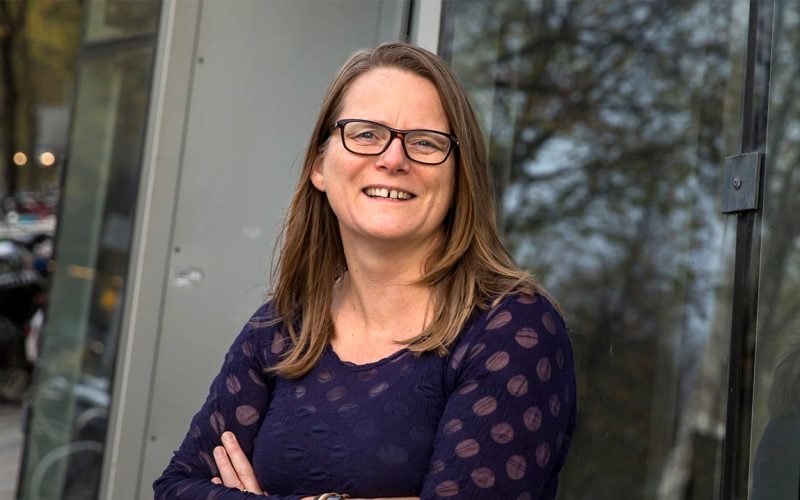The Royal Netherlands Academy of Arts and Sciences (KNAW) announced today that Prof. Dr. Elly Hol has been elected as a new member. Members of the KNAW are distinguished scientists from all disciplines and are chosen based on their scientific achievements. The KNAW has approximately 585 members. A membership is for life. In addition to Elly Hol, 21 other new members were elected. The new members of the Academy will be installed on Sept. 12.
Elly Hol is professor of Gliabiology of Brain Diseases and head of the Translational Neuroscience Department at the UMC Utrecht Brain Center. She was trained as a medical biologist with a specialization in molecular neurobiology. After receiving her PhD in Utrecht, she was awarded a Max-Planck Fellowship to work at the Max-Planck Institute for Psychiatry in Martinsried. In 1997, she started as a postdoctoral fellow at the Netherlands Brain Institute in Amsterdam, and between 2003 and 2013 she led the “Astrocyte Biology & Neurodegeneration” group. From 2011 to 2021, she was Professor of Biology of Glia and Neural Stem Cells at the University of Amsterdam.
In 2015, Hol was appointed professor of Gliabiology of Brain Diseases at Utrecht University. From 2013, she worked as a principal investigator and from 2020 also as department head at the Department of Translational Neuroscience. She is a member of Academia Europaea, also sits on the editorial board of Glia, is chair of the scientific advisory board of Parkinson’s Netherlands, chair of GliaNed, program leader of the Neuroscience master and PhD program of the Utrecht University Graduate School of Life Sciences, and manager of education at the Brain Division of UMC Utrecht.
The KNAW writes: “Elly Hol (1966) belongs to the still small but growing group of neuroscientists focusing on the biology of glia. These are non-neuronal cells that play a crucial role in keeping our brain healthy. They act as stem cells and immune systems, but can also derail them. Hol has published a number of highly cited papers in which she uncovers a correlation between certain proteins in the human brain and glial cells that play a role in the development of brain tumors and diseases such as Alzheimer’s and epilepsy. She is an important inspiration to young researchers, including through the national Glia network she leads and through personal mentorships for young women researchers.”
“I am very happy with this recognition for my research on glia,” said Elly Hol herself, “I could not have done this research without the enormous commitment of all the PhD students, postdocs, researchers, research analysts, and students who have worked in my group over the years in Amsterdam and in Utrecht. I also like to see how the group of glia researchers has grown in the Netherlands and internationally. The collaborations with colleagues at home and abroad and the support of grant makers make it constantly possible to discover new aspects of neuron-glia interactions in brain diseases. I am also very excited about new technologies, such as molecular single cell studies on human post-mortem brain material and functional studies in patients’ mini-brains, which are of great interest to my research on glia in brain diseases.”
The KNAW is a Dutch association of outstanding scientists and an institutional organization whose research and collections rank among the (inter-)national top. From an independent position, the Academy brings people and resources together to contribute to the development of our society with knowledge and creativity. In addition, the organization promotes the quality and integrity of scientific practice.
Photo: © Thijs Rooimans
